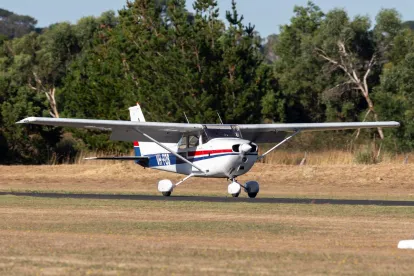The Internal Revenue Service (IRS) has announced plans to initiate dozens of new audits this spring in an attempt to ground high-flying taxpayers and their personal usage of corporate aircrafts. These audits will focus primarily on “highest-risk” corporations and large partnerships, IRS Commissioner Danny Werfel stated. Werfel added that audits of high-income earners will likely follow to “ensure that high-income groups are not flying under the radar.”
IN DEPTH
BACKGROUND
Generally, the cost of the use of corporate aircraft can be a deductible business expense. However, the use of a corporate aircraft must be allocated between business use and personal use. While business use of a corporate aircraft is a deductible business expense and excluded from the executive’s income, personal use of a corporate aircraft can adversely affect the deductibility of related travel costs and, with certain important exceptions, is includible in the executive’s Form W-2 wages.
There have been significant increases in spending on personal use of corporate aircraft. According to a recent Wall Street Journal report, large, publicly traded companies spent an estimated $65 million in 2022 for personal corporate aircraft usage by executives, an increase of roughly 50% from 2019. Much of the personal use of corporate aircraft is attributable to travel associated with working remotely and challenges stemming from the COVID-19 pandemic. While the IRS has historically audited corporate aircraft issues, including as part of its much-touted executive audits almost 20 years ago, this is a singularly focused audit initiative.
“Tens of millions of dollars” of tax deductions are at stake, according to Werfel. The bonus depreciation deduction is one of the most lucrative deductions currently for corporate aircrafts and may be the target of most of the audits. The Tax Cut and Jobs Act of 2017 allows for 100% bonus depreciation and expensing of private jets – which permitted taxpayers to write off the full cost of aircrafts purchased and put into service between September 2017 and January 2023. After 2023, the deduction will decrease by 20% each year until it is fully phased out by 2027. However, the US House of Representatives recently passed the Tax Relief for American Families and Workers Act of 2024, which extends the 100% bonus depreciation rate until the end of 2025.
OBSERVATIONS
The IRS will reportedly use advanced analytics and other resources funded by the Inflation Reduction Act to examine corporate aircraft usage more closely. This area has not been highly scrutinized during the last decade. An April 2023 IRS report on tax audit data states that “continued resource constraints have limited the agency’s ability to address high-end noncompliance” and that in the 2018 tax year, audit rates for people making more than $10 million were 9.2%, down from 13.6% in 2012. And, in the same period, overall corporate audit rates fell from 1.3% to 0.6%.
The audits present, as stated by Werfel, “a significant opportunity to collect a significant amount of revenue” and help close the “tax gap” of approximately $700 billion per year. While Werfel stressed that the IRS does not take the position that all large corporations and high-income earners are noncompliant or are purposefully engaging in evasive behaviors, this increased audit activity will result in IRS challenges to many compliant taxpayers. The National Business Aviation Association has countered that the IRS audit initiative “amounts to nothing more than an audit in search of a problem,” noting that it “is difficult to understand why the agency is suggesting that these companies – some of the most respected, well-managed businesses in the world – are not in compliance with applicable tax laws.”
Regardless of these divergent perspectives, it is reasonable to anticipate, given the value of the corporate aircraft deductions and corresponding income inclusion issues, that these in-depth IRS audits will focus on identifying deficient recordkeeping, disallowing business deductions and adjustments to C-suite executive wages, all with the eye toward using the test audits to develop broader audit guidelines for future use.
To adequately prepare for this increased audit activity, employers with corporate aircrafts should review the following:
- Existing recordkeeping (e.g., is it contemporaneous with corporate flights, does it capture all relevant detail (including who is on board and the purpose of the trip), is it audit-ready)
- Corporate aircraft personal and entertainment usage for compliance with written policies
- Leveraging the complex income exclusions for an executive’s personal use of corporate aircraft
- Any changes in the business home of executives since the COVID-19 pandemic that might impact existing reporting positions on personal versus business use
- W-2 reporting of personal usage of corporate aircraft, including various Subtitle C wage and information reporting exclusions
Being proactive rather than reactive is the best method to keep the skies friendly. The time to prepare for an IRS corporate aircraft audit is now (especially for the personal use exclusions) and not when the company receives an IRS audit notice. Distinguishing between business, personal and entertainment travel – including ascertaining an executive’s tax home post-COVID-19 – is not always straightforward. McDermott lawyers have extensive audit experience addressing these matters.





 />i
/>i

